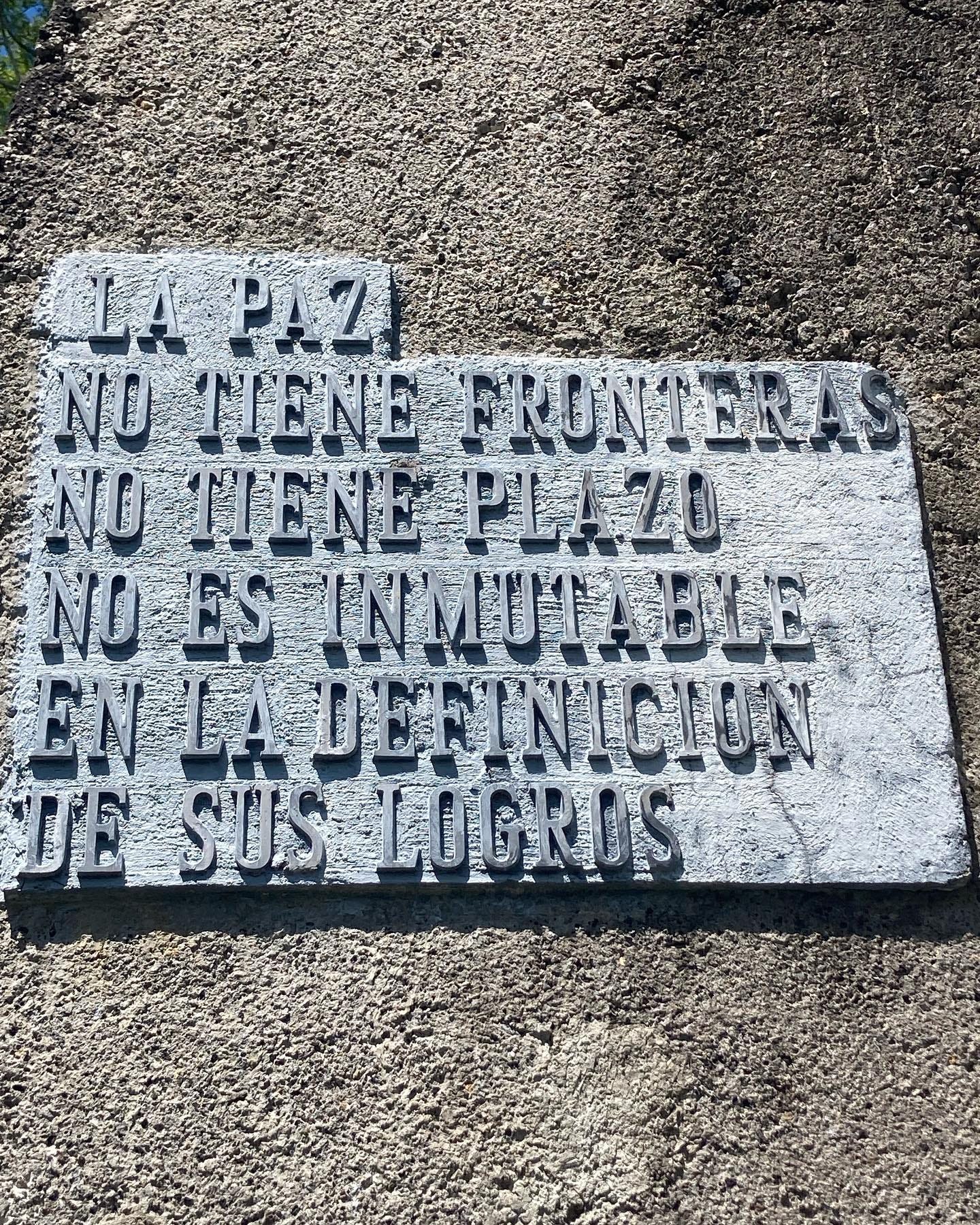“Happy is the Costa Rican mother
Who knows that when giving birth
That her child will never be a soldier.”
-University for Peace Peace Park Memorial
“It’s time to abolish war.”
These words, spoken by Cora Weiss, echoed in a Japanese arena outside Tokyo for the Global Article 9 Conference to Abolish War in 2008. Over and over she repeated this refrain. It’s time to abolish war. Over 10,000 of us were listening, and joining our hearts in a collective aspiration for this to be true.
I was volunteering at the conference on behalf of PeaceBoat, one of the main conference organizers. I had stepped away from my duties at the coat check table and happened to catch Cora’s keynote speech. Standing in the back of that arena, filled with thousands of people dedicating their lives to peace, I felt the deep sense and sanity in her words, and asked myself, “What am I doing with my life if not working towards this?”
That day led me to study peace1, and to teach peace2.
I am here, 15 years later, sitting in Costa Rica, teaching peace, but not today (besides writing this) because we have the day off for the National Day of the Abolition of the Army. It is a day to commemorate the day in 1948 that Costa Rica abolished its army after a civil war. In honors the fact that Costa Rica, like Japan3, is one of a few dozen countries in the world that do not have standing armies.
A day to honor that it is possible to abolish armies.
That it is possible to abolish war.
It is possible to abolish war.
It is imperative that we abolish war.
We must reclaim our humanity and abolish war before we bomb the world to pieces.

It is possible and it feels as far away as ever as we watch the horrific destruction of Gaza by the state of Israel. How can any of us watch this and justify it? How can anyone watch this and justify the bombing of children, hospitals, schools, refugree camps? These are war crimes. This is a genocide happening before our eyes.
“Humanitarian pause” is an oxymoron. There is nothing humanitarian about a pause in bombing if the bombing is set to resume.
As I wite this, on this day celebrating the abolition of the Costa Rican army, the “pause” has ended and the brutal bombing of Gaza has resumed.
Abolishing the army doesn’t solve everything (in peace studies, this is a facet of negative peace, meaning stopping direct violence), and it is not to say that Costa Rica is without its problems. But the lack of military spending means spending on education and health care, a high literacy rate, investing in green energy and environmental protection (these are facets of positive peace, creating the conditions for peace and life to flourish). Costa Rica has been one of the most stable countries in the region for many decades. There are many reasons for this, but one is certainly that it is not engaged in war or preparing for war.
When you aren’t spending all your money on war, you can prepare for peace, which means investing in society, health, well-being, and education.
As we watch the horrors happening Gaza - and please, let’s not just watch; keep using your voice to call for a permanent ceasefire in any way you can, call your representatives, donate, protest, boycott - we should all be able to agree that it is beyond time to abolish war. For the sake of our humanity, for the children of this planet, for future generations, we must stop.
Permanent ceasefire now.
It is beyond time to abolish war.
For any readers who don’t know, I have a masters and PhD in it.
I am a professor of peace and conflict studies.
Japan does have self-defense forces which are arguably a military force and have one of the largest military budgets in the world. So although by its constitution, Japan has an article that abolishes the military, this article is often under threat of being dismantled, and is arguably not implemented through the vast resources spent on the self-defense forces.





Wonderful, wonderful message, dear Stephanie!